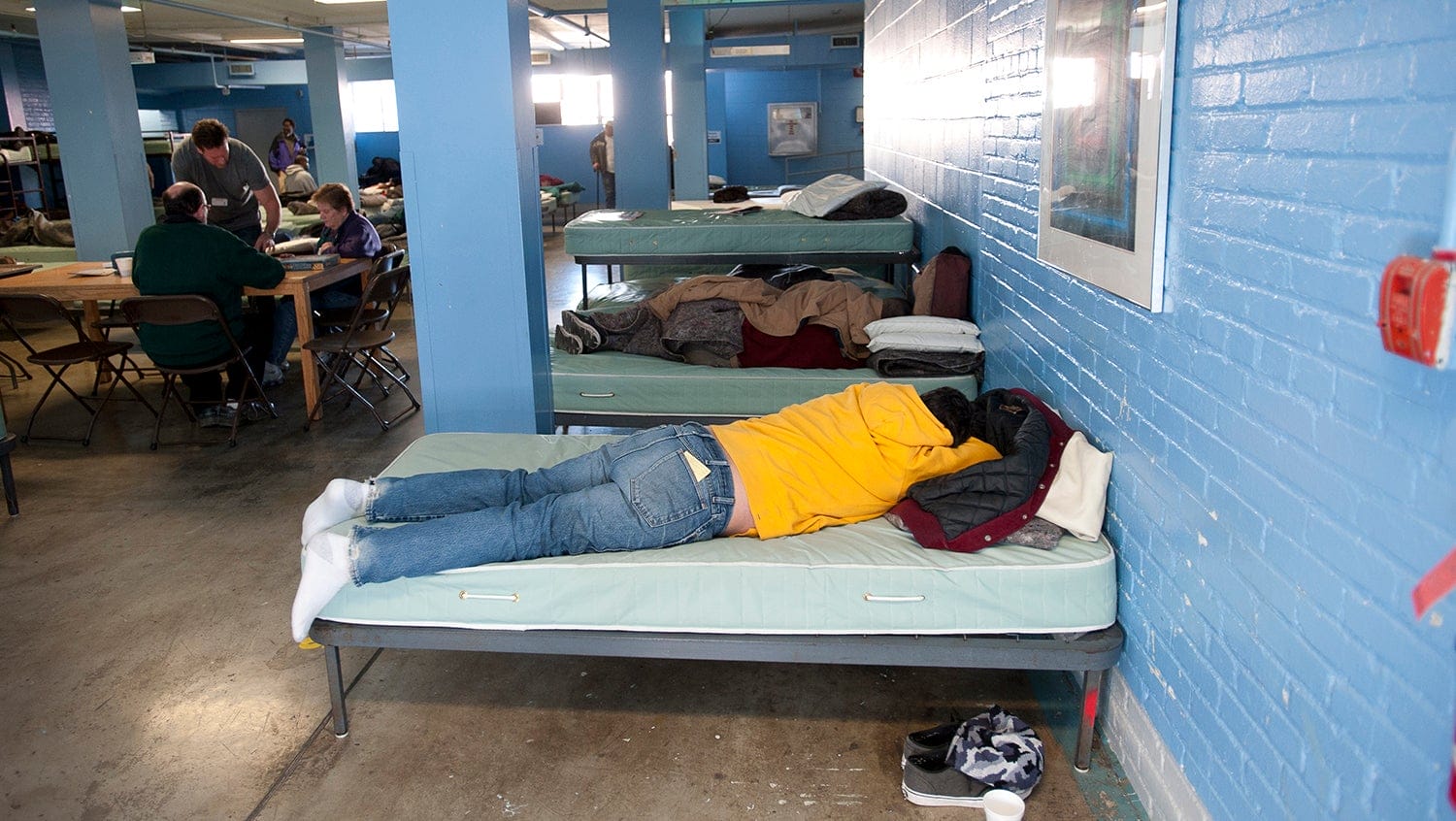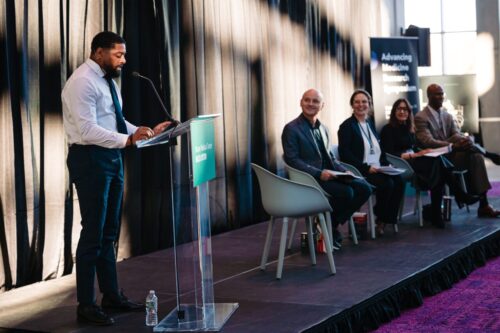‘This Is Not a Virus of Equity’: Homeless Shelter President on COVID-19
March 17, 2020

Getty Images
The president of the largest homeless shelter in Boston describes the challenges homeless services providers are facing during this pandemic and how they're facing them head-on.
Lyndia Downie has managed outbreaks of meningitis and hepatitis A at the largest homeless shelter in Boston, but as soon as COVID-19 arrived in the U.S., she was worried. As the president and executive director of Pine Street Inn, Downie knows better than anyone that homeless people are among some of the most vulnerable to infectious disease and at risk of developing severe illness.
Downie talked with HealthCity to describe the challenges she and other homeless services providers in Boston are facing during this pandemic, and why proactively addressing needs like food and housing insecurity are critical in times of crisis.
HealthCity: Why are homeless people at high risk for COVID-19?
Lyndia Downie: Pine Street Inn serves 1,600 to 1,700 people a day through street outreach, shelter, and permanent supportive housing. Many people we serve have comorbid conditions like heart disease, diabetes, or substance abuse, and this will bring another layer of risk.
In the shelter setting, social distancing is also a challenge. Our guests sleep in dorms and everyone eats together … we just don’t have space to separate people. That reality, combined with their medical and age vulnerability, puts homeless individuals at much higher risk for COVID-19 than other people.
HC: What is the overall feeling right now at Pine Street Inn?
LD: Everyone has horrible anxiety about what’s going on. But unlike everybody else who can go home and shut the door, the people we work with don’t have that option right now. They’re doing the best they can, but if they’re mentally ill or actively using, that adds another layer of complication and can increase their anxiety level.
When you’re homeless, you have very little control over many things in your life and this is another thing where you don’t have a lot of options or control. That’s why we have to do everything we can to get ahead of this as best we can.
HC: What measures have you put in place to protect your guests and staff?
LD: We’re doing the essential things that I hope everybody is doing across the country — what I call ‘Step A’ interventions. Handwashing, sanitizing every single surface every day, and constantly educating guests. On Monday, we initiated a ‘Step B’ level of intervention. In collaboration with Boston Health Care for the Homeless (BHCHP) and Boston Medical Center, we’re going to be pre-screening everyone before entering our building. We don’t have a place at the moment where people can self-quarantine, but we’re working closely with the city and state on quarantine sites.
HC: How are you working together with other local organizations and city and state entities to respond to the COVID-19 pandemic?
LD: Among homeless providers in Boston, we have a strong collaboration and are all very focused on a single goal — to move people out of homelessness. Both the city of Boston and the state of Massachusetts are very responsive to our population. So the good news is that the city has extraordinarily good and deep data that I think will help us during the COVID-19 pandemic. The same tools that we’re using to try to identify people for housing in some ways will help us with containing the virus. For example, we have a shared database so the city shelter staff know whether someone stayed at Pine Street Inn the night before, or on the street.
The database wasn’t designed for a pandemic — it was designed to target housing for people who are chronically homeless — but my hope is that it will allow us some flexibility and ability to drill down and intervene in ways that other communities may not be able to.
Another innovation working in our favor is that our beds are assigned electronically, so if someone in the shelter tested positive for COVID-19, we’d start there. We would know who they slept next to for the previous two weeks and where they are now. I’m not going to tell you it’s a perfect system, because it does have holes, but we do have some ability to walk it back.
HC: What are the biggest challenges you face right now?
LD: There’s no question this is going to cost everybody a lot of money — for additional staffing, equipment, cleaning supplies. If this lockdown lasts a couple of weeks, we’ll manage it, but it won’t be. It’ll be months. Our staff have been complete heroes in all of this and are doing everything they can to get ahead, but unfortunately the entire country probably should have been testing two months ago.
What’s the most worrisome is that many of our guests are already so vulnerable because of their age and their health status. These are folks that could potentially get very sick, very fast. It’s become so stark to people that this is not going to be a virus of equity. The people who have the least ability to respond are going to suffer the most.
HC: What are the downstream consequences of treating COVID-19 — who or what is impacted when treatment takes up more time, space, and resources?
LD: The ripple effect from this is enormous. The efforts that are being made to stem evictions and not displace people really matter because our system could potentially get overwhelmed. Having someone new come into a system that can’t manage it is not going to help that person and certainly won’t help us. We need to continue looking at the issues of food, financial, and housing insecurity to help prevent displacement. The last thing we need right now is more people. We need fewer people so we can do more social distancing and more testing.


